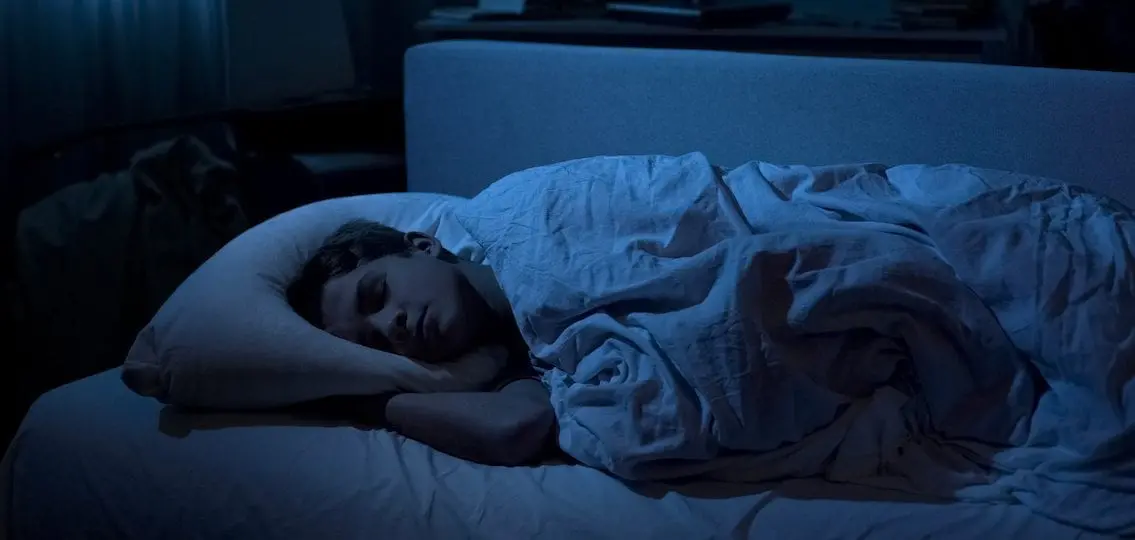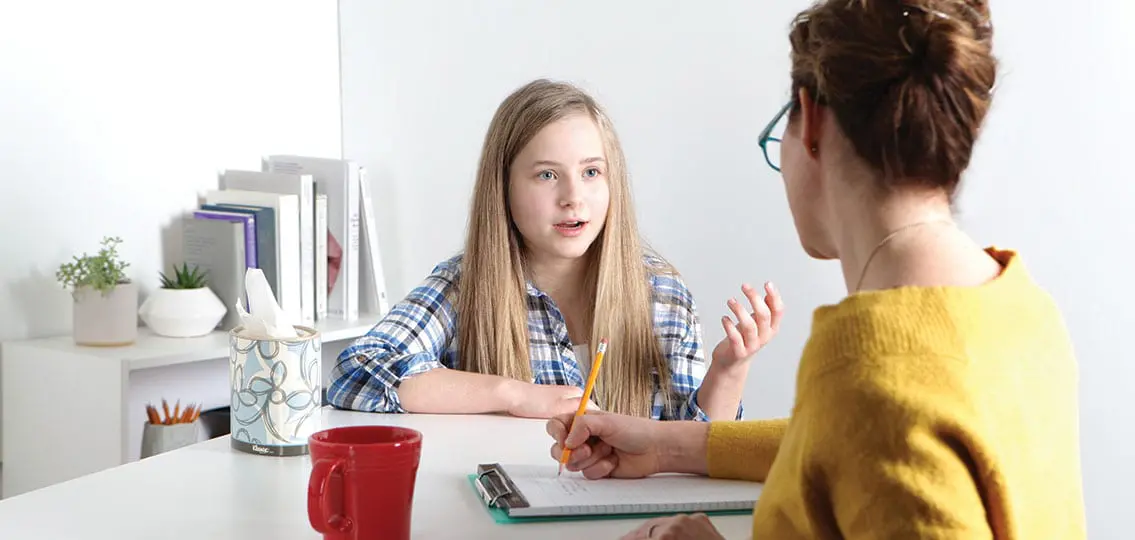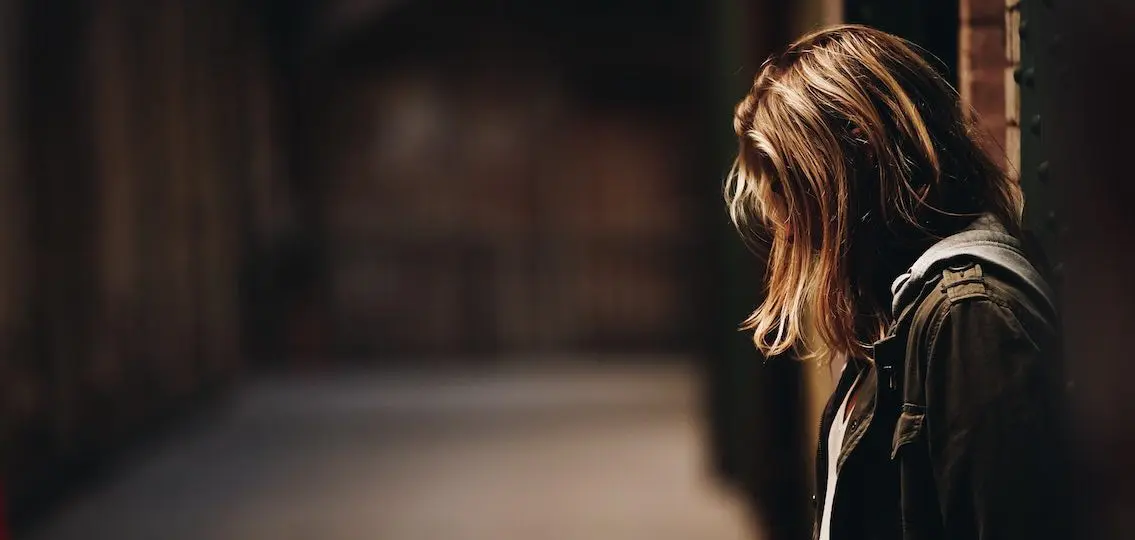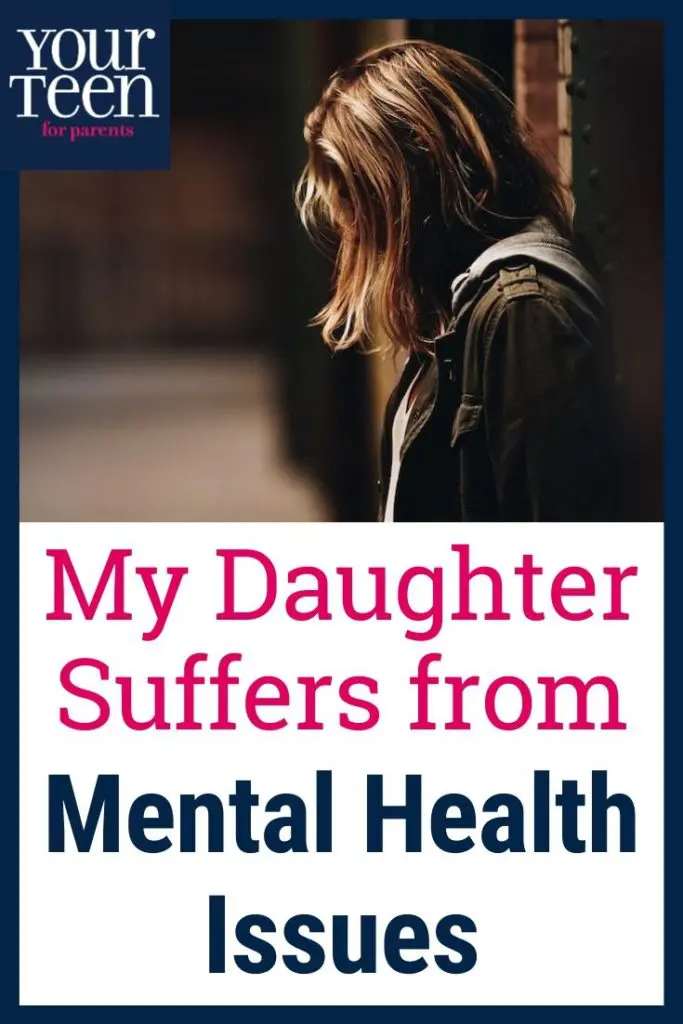“Mom, are you crying?” my 17-year-old daughter Lee asked with a look that signified not amusement but astonishment. I could tell because her eyes began to glisten, too.

“I’m just worried,” I said.
“About what?” she asked, although she surely knew.
“About all your failures.” Dang, that came out wrong.
“Gee, thanks, Mom.”
I wiped my tears and tried again as she smiled. Lee, in the tight grip of anxiety and what appeared to be depression, hadn’t lost her sense of humor.
“What I mean is, I’m worried about all your system failures. It’s not your fault. You’re not failing— your body—the physical system that is supposed to keep you running smoothly, is.”
I turned away to reach for the antibiotic ointment. Lee’s mental health struggles had manifested a new symptom: face scratching. She had picked at the perfect skin above her cheekbones so much that there were now two dime-sized open wounds. I carefully applied the healing ointment as I searched for more words to explain how I was feeling.
Depression in the United States has been on the rise for years, but especially for the younger generation. According to a report released by Blue Cross Blue Shield in 2018, major depression diagnoses have climbed 63 percent among adolescents since 2013. Often, mental disorders are accompanied by other conditions. Depression’s travel partner appears to be anxiety or GAD (general anxiety disorder) and the latter actually tends to be a harbinger of the former.
I had been in denial for a long time, chalking my daughter’s moods up to adolescence, her weight loss to too much softball, and her belly aches to her naturally nervous nature. When I realized the aches were becoming a chronic condition, I began to worry. When Lee began to experience choking sensations, my worries became accompanied by an undercurrent of panic. I decided that my parental supervision had to be escalated to a more hands-on level in order to correct the situation.
The confidence that I would be able to correct anything simply by becoming more hands-on, however, soon dissipated into despair.
First, I took Lee to learn Yoga Nidra from a friend.
A few weeks of this intense meditation practice seemed to get rid of the choking tic, as it was brand new on the scene of her collection of anxiety symptoms. The belly aches, however, remained. Maybe because they had simply been around for too long to be rid of this easily.
Lee’s pediatrician encouraged me to take her to a gastroenterologist, just to cover all bases. This doctor ordered a gamut of tests: blood examination, stool sampling, x-rays, ultrasound, CT scan.
Nothing.
Or, as the radiologist put it, “There’s good news and bad news.” (Not a sentence anyone wants to hear after a CT scan.) “The good news is,” he continued, ”there is nothing wrong with your daughter. The bad news is, you still don’t know what’s causing her pain.”
I guess I should have been happy to know that my kid seemed to be okay physically, but the doctor was right—not having answers to what was wrong with my first-born fueled my stress.
I began my search for a teen therapist. I decided to start with an affordable online service which allowed for a 24/7 chat connection with a licensed therapist, but also included weekly live sessions via video-chat. Unfortunately, Lee hated talking about her feelings via text, let alone with a stranger.
After several interventions, phone confiscations, melt downs (mostly on my part), and endless talks, I decided to dive into my dust-collecting parenting books. Reading about normal, and not-so-normal, teenage behaviors helped. I began to calm down. I reacted less emotionally, listened more, and I didn’t allow myself to be swept up into Lee’s moods.
I began to cook more regularly to provide guaranteed bonding time over family dinners, not to mention at least one balanced meal a day for this kid who would just live off chicken nuggets if I’d let her. I recruited her younger sister to be involved in the “bring Lee back to herself” mission.
As my daughter continued struggling with her mental health, I gave up trying to make the online counseling service work.
I followed a recommendation for a nice—but expensive—therapist on Manhattan’s East Side. Luckily, I had savings to dip into to cover the cost.
When the new therapist decided Lee needed medication, and thus a psychiatrist to write prescriptions, I learned the true meaning of the word expensive. I was in shock when I saw that every well-reviewed psychiatrist charged $400-$650 per hour, but I simply broke down in tears when one doctor called me back to confirm that he did not take insurance and that his initial consultation was $1400.
Mental health suddenly felt like a luxury good.
I wish I could offer some all-knowing note of wisdom. But I am still too deep in the mud to have gained perspective. I am reporting from the trenches, so to say. I have tons of information, but I am not sure of anything and cannot provide any infallible solutions.

For now, I will just keep encouraging my daughter to go to therapy, keep the lines of communication open, make sure she eats at least one good meal a day and gets enough sleep. I will try not to let her see my own meltdowns about how powerless I sometimes feel in this struggle with her mental health. I will continue to read and research but, most of all, I will continue to show my daughter that she is loved.





